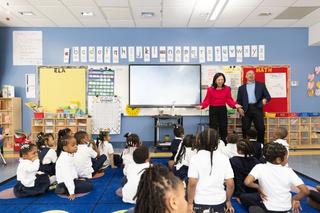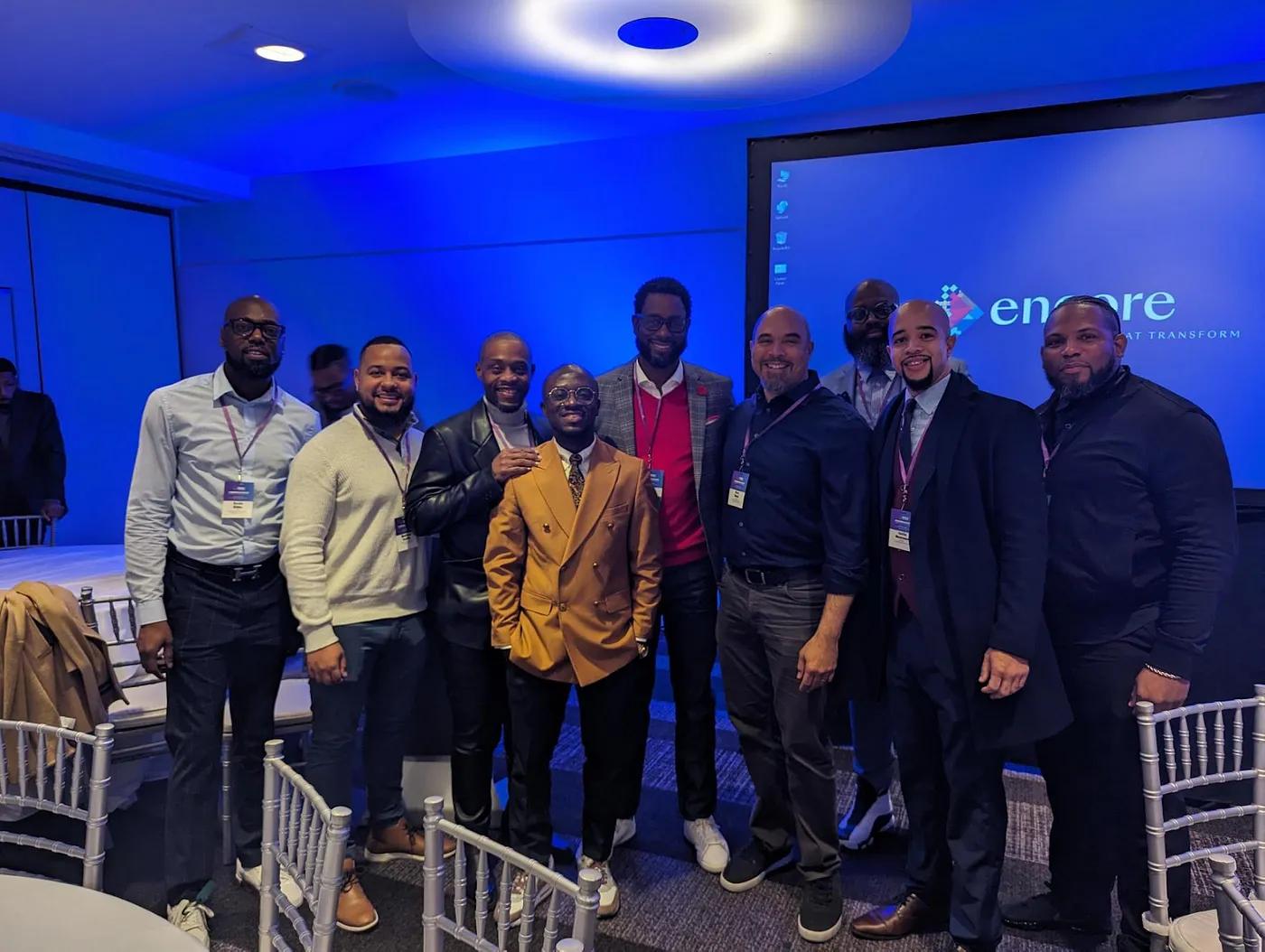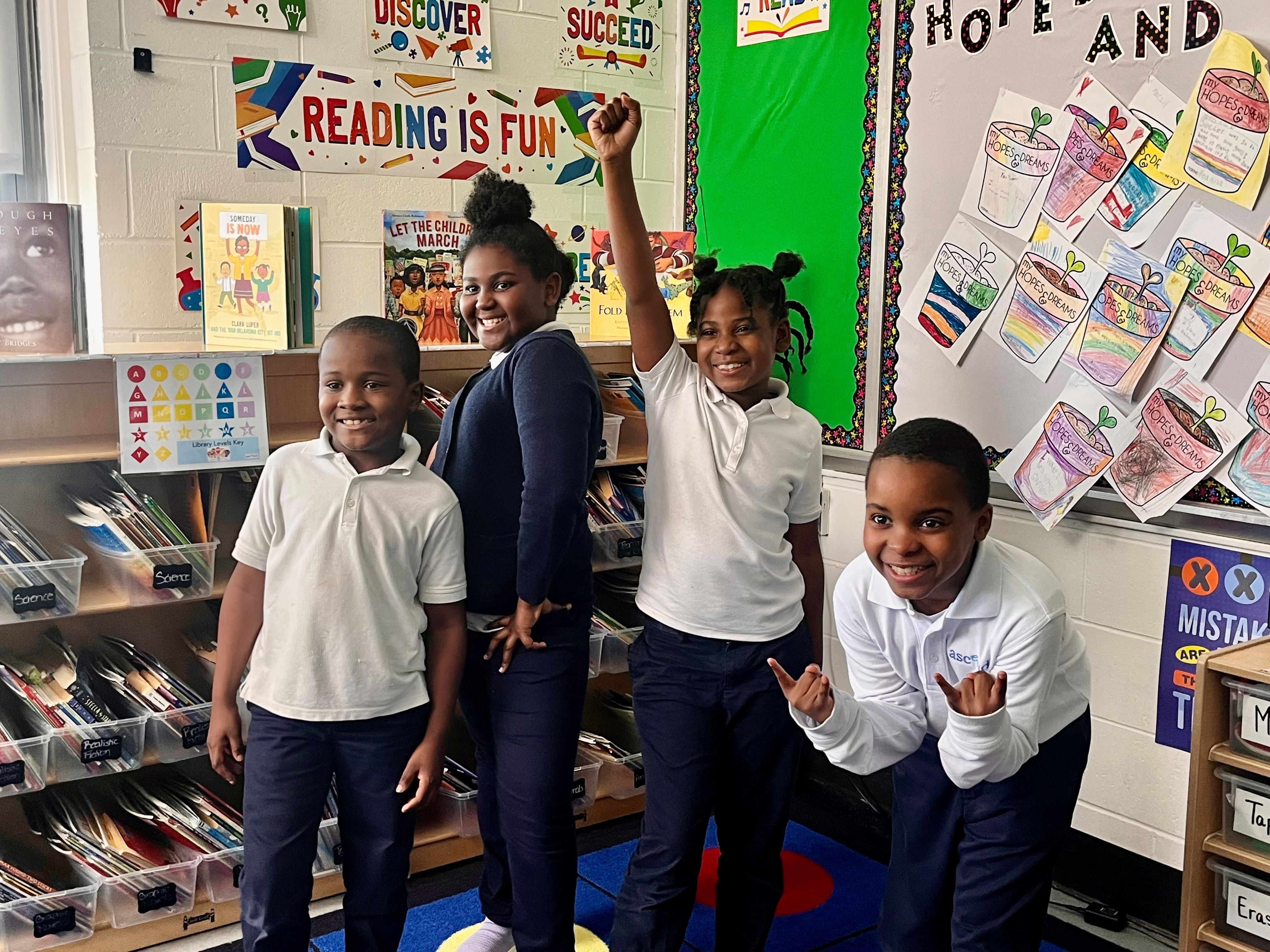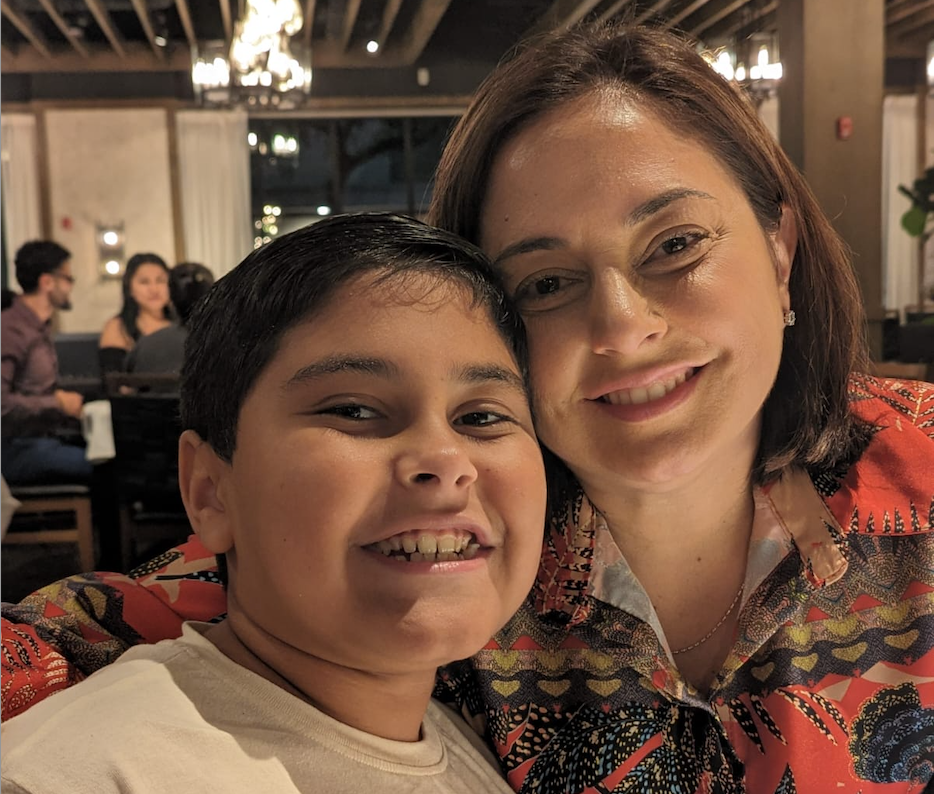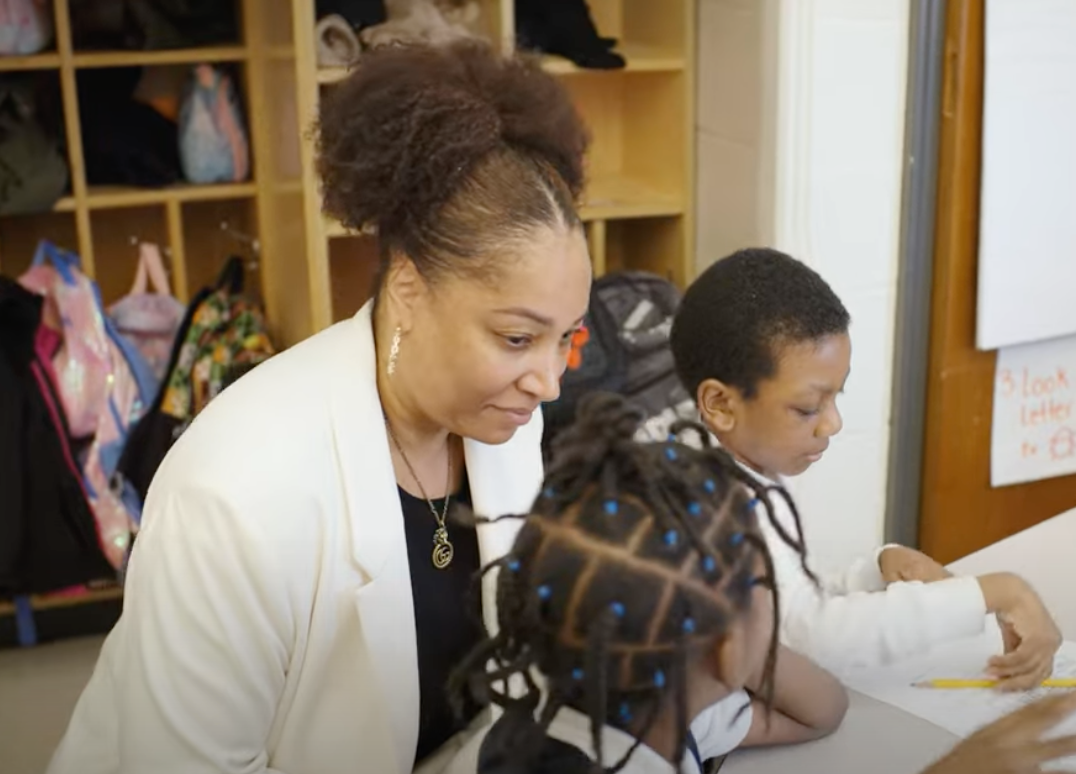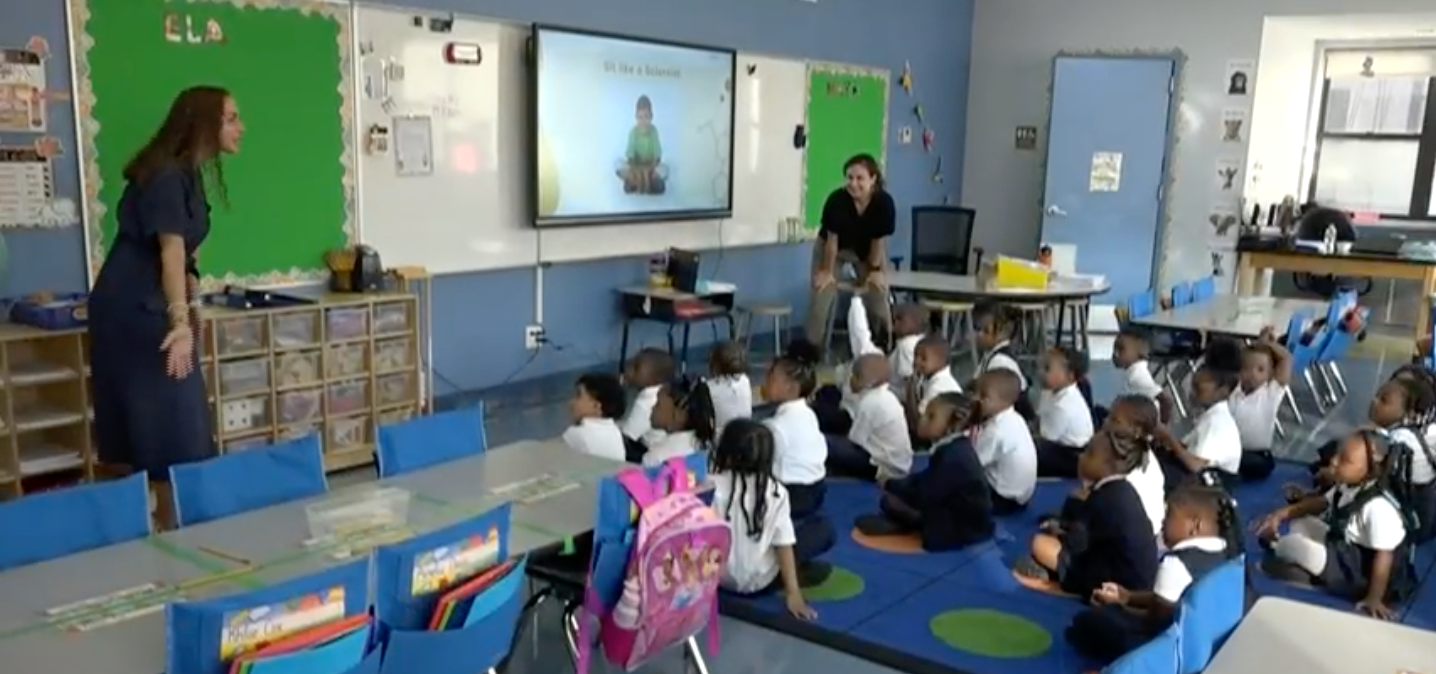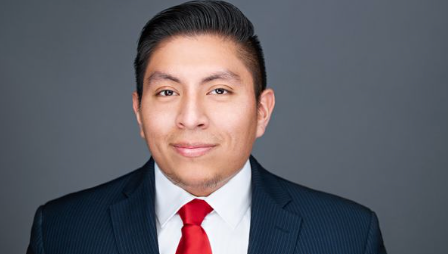A brighter future begins now! Apply today for Fall 2025!
A brighter future begins now! Apply today for Fall 2025!
Why Black educational leadership matters so much
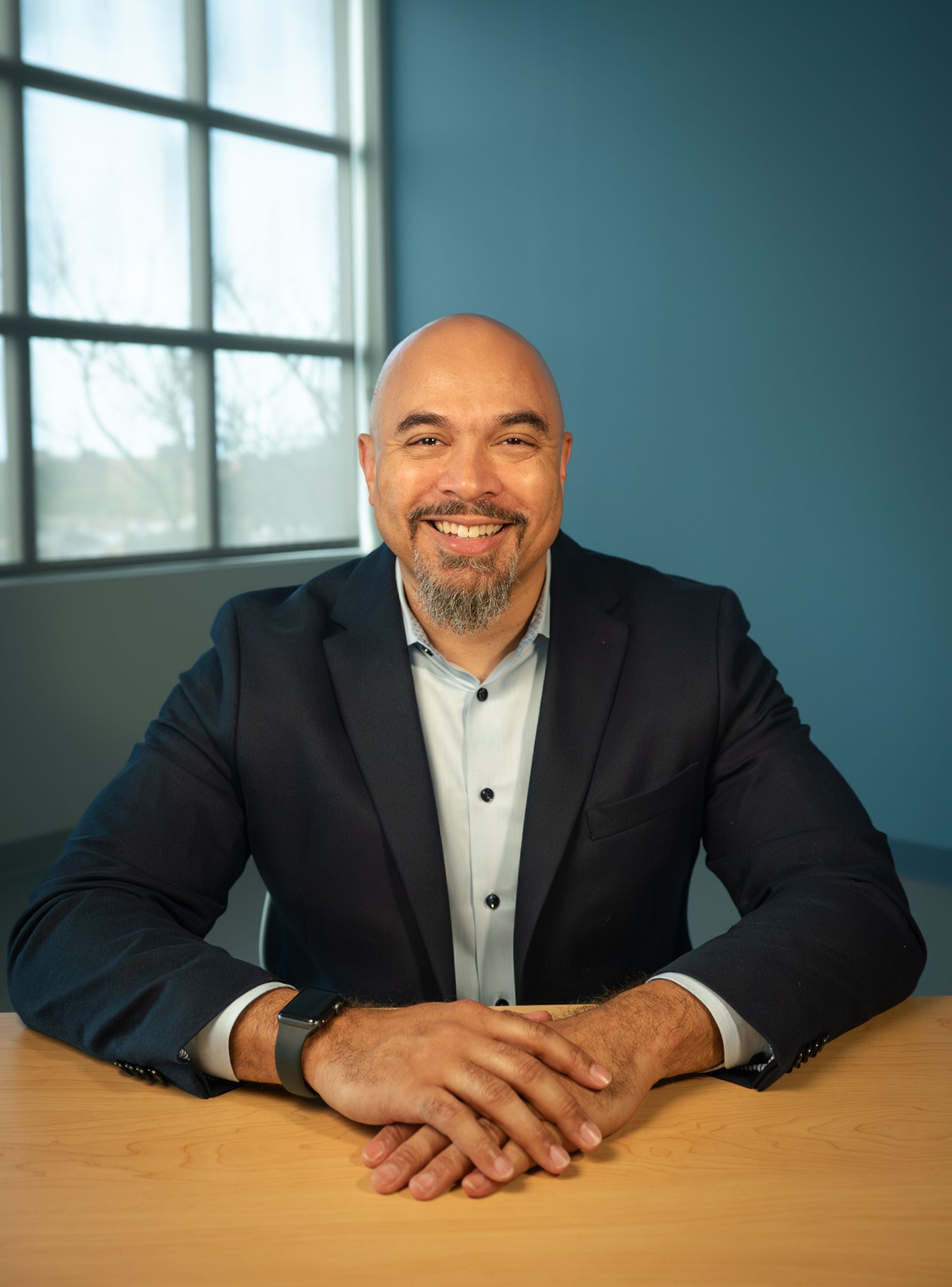
Recy Dunn
February 15, 2022
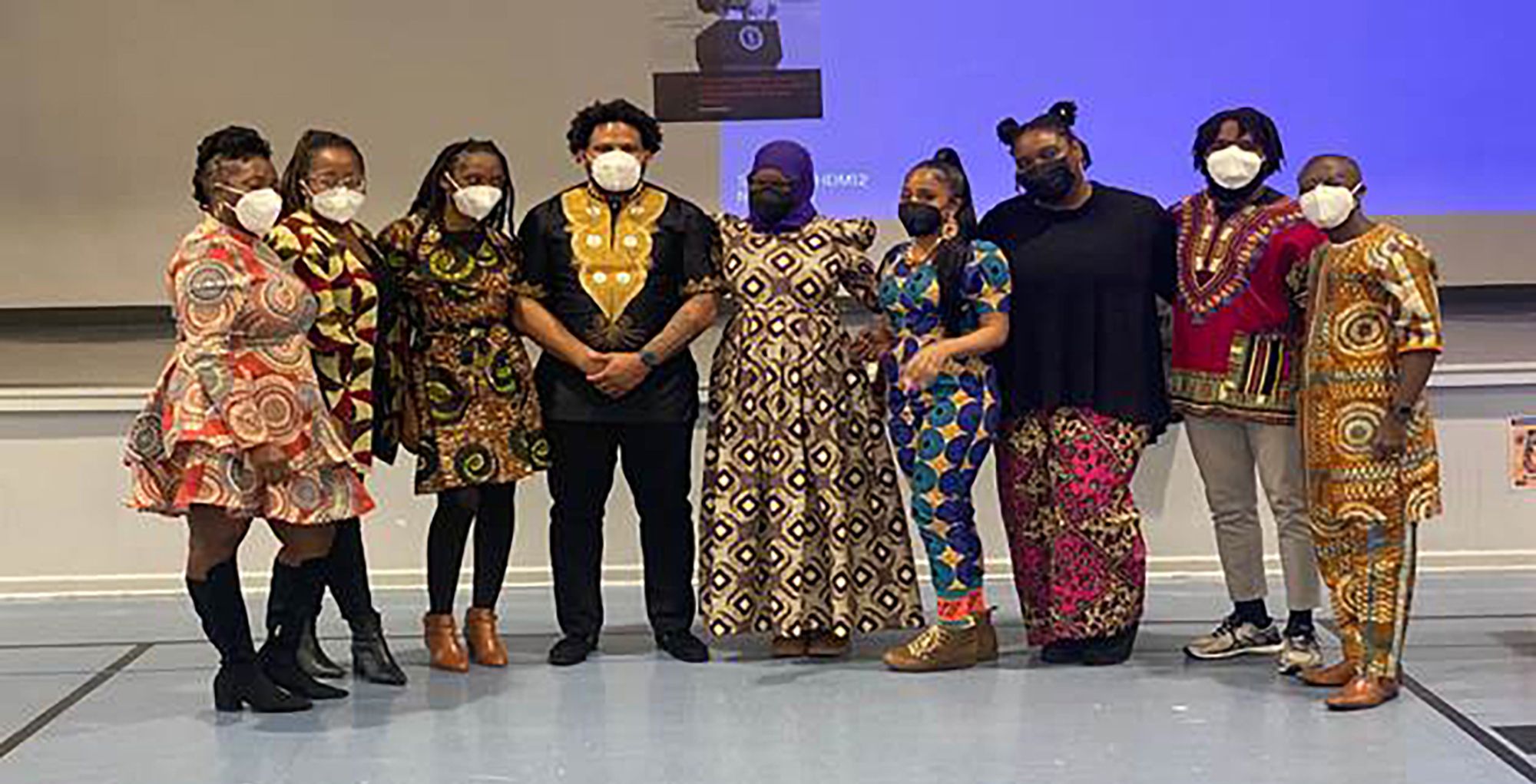
As published in the NY Daily News.
The magnitude of having Black leaders in place cannot be minimized. It is a lesson I learn over and over in my work leading Ascend Public Charter Schools. Our network is rooted in Brooklyn and serves nearly 6,000 students across 15 campuses in Brownsville, Bushwick, Canarsie, Cypress Hills, East New York, Flatbush/East Flatbush and Little Haiti. We view cultural differences as assets rather than deficits and seek to identify, acknowledge and disrupt systems and structures that perpetuate racism and inequity. This requires us to embed diversity, equity, inclusion and anti-racism into everything we do: the curriculum we teach, our instructional pedagogy and approach to culture, policy, staff and more.
This work is not easy. I would be lying if I said I wasn’t surprised on my first day on the job, when I visited classrooms and saw a Black male teacher, then a second, and then a third. I wish seeing those men on my staff didn’t feel abnormal, that education was in a better place, with a workforce mirroring our student body.
The oft-quoted statistic suggests only 2% of teachers nationally are Black men. At Ascend, that number is 14%. Fifty-nine percent of our staff are Black, including 60% of our teachers, 60% of school leaders, and 57% of the executive team. They serve a student body that is 76% Black. And we still have a long way to go.
In a paper by Dr. Charles Cole III, “The Importance of Black-Led Charter Networks,” Cole asks students, “Did you know that your CEO is Black? If so, what impact, if any, has that had on you?” The answers of the students are powerful: “Yes, it lets me see someone that looks like me doing great things and makes me know it is possible for me to do the same.”
I recently met with a young Black boy who wanted to change our school’s uniform policy to allow for “shoe freedom” — a small change that would have minimal impact on the dress code, and one I was open to making after his advocacy. The lesson is that small changes can open the door to bigger and more important changes. The other thing I cannot overstate: the impact of having a Black boy see the Black school leader sitting across the table from him and listening to his ideas. He had my ear, and his voice mattered. That dialogue is why I am relentlessly committed to advancing the equity agenda.
Schools should exist to serve every student — to help them embody their inherent excellence by providing rich, joyful learning experiences that unlock a life of boundless choice. This is our mission, and it is difficult. School is a challenge during a normal year; school during COVID-19 is even harder. It has had a collective traumatic impact on students, families and staff. Add the great resignation, teacher shortages, struggling morale and exhaustion to make our work more difficult.
Working toward our mission of diversity, equity, inclusion and anti-racism can feel like extra work. But it cannot be extra work; it is the work integral to how we lead our schools and shape our students’ lives. Inequity does not know or care that there is a pandemic. In fact, COVID only enhanced how disparities in Black and Brown communities play out more in health outcomes and access to resources we take for granted. Now, more than ever, we need to go deeper and double down on our commitment to diversity, equity, inclusion and anti-racism. But to do this never-ending work, we need help from everyone to make our collective vision a reality.
Pictured: Central Brooklyn Ascend Middle School teachers and staff dressed to celebrate Black History Month.
Share
Other Articles
© Ascend Public Charter Schools 2025


